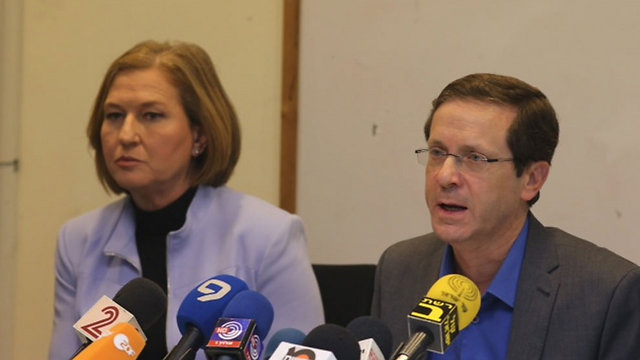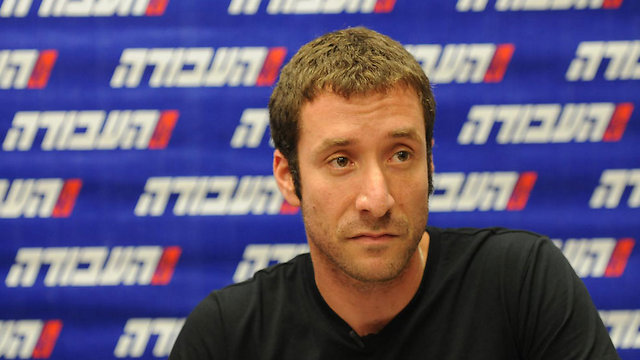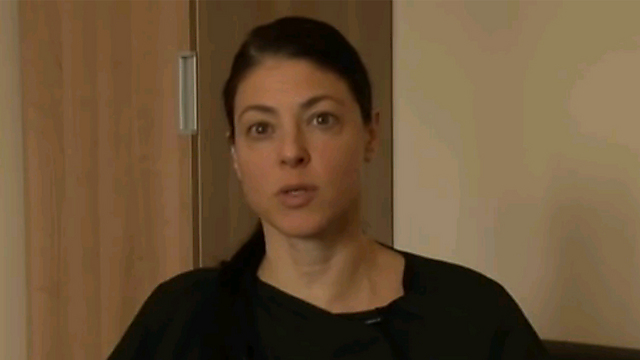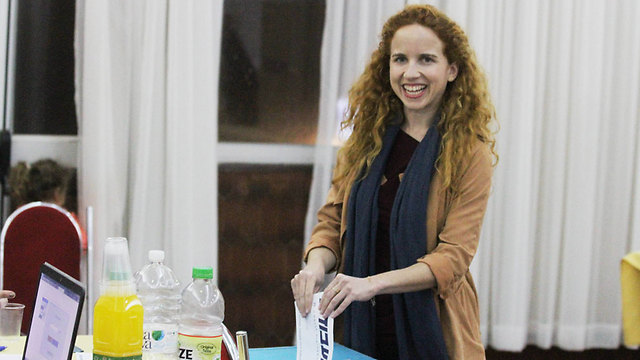
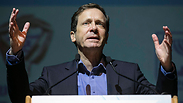
Inside the failure of the Zionist Union campaign
After recovering from the shock of the election results, Zionist Union MKs try to figure out where they went wrong, and who was to blame for the collapse of the campaign efforts. In order to rise to power, they admit, 'we must tap into wider sectors of the Israeli public'.
When the Zionist Union Knesset members woke on Wednesday morning to the reality of a six-seat advantage to the Likud, any shred of optimism they may have felt following the publication of the neck-and-neck exit polls the night before vanished into thin air. And ever since, smiles have been very few and far between.
Ahead of the election, MK Eitan Cabel was expecting a 27-22 win for the Zionist Union. "The election results are a Day of Atonement for my gut feelings," he says. "I think I'm done with trusting them. I was out in the field over the past three months and I heard people say they were going to vote for us. Apparently, I was drawn into a fantasy by the things they said. I keep telling myself that our 24 seats are no small feat. But the achievement is dwarfed by Netanyahu's victory."
On learning of the results of exit polls on Tuesday night, MK Merav Michaeli said: "I'm very optimistic. We can definitely form a government, and Herzog's greatest talent is the ability to bring people together. He'll succeed." By Wednesday morning, the optimism had disappeared. "I woke in the morning to the actual results and only had one word to say – bummer," she recalls.
The street vs. Facebook
The actual results left MK Itzik Shmuli stunned when he woke to them at four-thirty on Wednesday morning. "It was a huge shock," he says. "The results were in stark contrast to what we sensed in recent weeks. It's not that we faked a sense of victory. We could really feel the victory, and particularly in traditionally Likud areas. The sense that people are tired of Netanyahu was very evident.
"I figured we would win. I envisaged a relay race, with our mission being to build up a gap of two or three seats from the Likud and pass the baton to Herzog. But we didn't make it to the finish line. Four days before the election, Netanyahu went on the offensive, took responsibility for the campaign, and then everything changed. His cries of misery did the job, and the Likud voters returned home.
"My neighbors in the apartment building voted for Netanyahu. I spoke to them at length and they know that Netanyahu won't solve their financial problems and the housing crisis their children face, but they are certain they have to vote for the Likud. One of them talks of the days of Mapai and how the Mizrahim were discriminated against; another says terrible things about the Arabs and is sure that only Netanyahu can deal with them.
"Two things made me sad: First, the public complains about the cost of living, social gaps and a political dead-end, yet votes for the person responsible for the situation anyway. It's exactly like the phenomenon of the woman who doesn't leave her abusive husband. And the second element of my sadness stems from the sense that there is no solution in sight. Taking shape here is a narrow right-wing government coalition that will drag us even deeper into the mud."
Where did you go wrong?
Shmuli: "Before Reuven Adler was brought in, the campaign wasn't unified and didn't present unified messages. When Adler joined, things changed. He managed to sharpen the messages, but it was too little and too late. The campaign's second weakness was the decision not to invest too much effort in the field and at the branches. They preferred instead to go for another radio broadcast or a slogan on Facebook. Ultimately, the people who vote for you are the people you meet on the street and not only those who spend their time on Facebook.
"When I look at the breakdown of votes per city, I see that we hardly made a breakthrough anywhere. It's impossible to defeat the Likud without visiting its political strongholds, and we really didn't invest sufficient effort there."
Shmuli believes the campaign wasn't aggressive enough – not against Netanyahu and not against Yair Lapid, who was vying for the same voters as Zionist Union. "I kept saying during our meetings that we need to be more cannibalistic. If the decision was to base the campaign on the slogan, 'It's either us or Bibi," then we must get personal and attack with all our might. I personally did so wherever I could, but they didn't agree with me at the campaign headquarters.
"This election campaign was a vote of confidence or no-confidence in Netanyahu, and we were absent from this arena. I have no doubt that this is one of the main reasons why we didn't win more seats. I also think it was a strategic mistake not to launch a forceful and ongoing attack against Lapid.
"Adler did indeed manage to convey the message of Netanyahu's lack of achievements as prime minister, but I believe he didn't focus on the differences between us and Netanyahu and what we have to offer the voters. We should have spoken consistently about the reforms in which we believe, and that was hardly done. Unfortunately, Israeli politics have become extremely personal, and image is the deciding factor, so we concerned ourselves too much with Herzog's voice and efforts not use his nickname, Buji – and less so with our platform."
Cabel isn't convinced that a better campaign would have yielded better results. "There were mistakes, and we may have won another seat or two with a better and sharper and tighter campaign," he says, "but I feel that we worked ourselves to the bone, both on the organizational level and from a PR point of view. In retrospect, I would have conducted a more aggressive and nasty campaign centered on the more substantial issue – fundamental questions regarding two states for two people, the cost of living, the housing problem and so on.
"I didn't like Herzog's face-off with Netanyahu on Meet the Press on television last week. Herzog appeared small there in comparison to Bibi, and his appearance only added to peoples' argument that he can't be prime minister."
Order in the kindergarten
According to MK Micky Rosenthal, the campaign was full of mistakes. "There was too much internal strife in the party, and it hindered things – until Adler came along and restored order to the kindergarten," he says. "Initially, the campaign was completely wrong. It focused on Netanyahu's personality and the conduct of his wife and sparked a negative attitude towards us. After Adler came in, there were efforts to portray Herzog as the spearhead of a responsible leadership, but there wasn't enough time to entrench this."
Like Shmuli, Rosenthal too thinks that the Zionist Union should have done to Lapid what Netanyahu did to Naftali Bennett and his Bayit Yehudi party. "If we would have attacked Yair and taken four seats away from him, we'd be in a different place right now," he says.
"I've been thinking a lot about last Friday, when the surveys showed a four-seat gap between us and the Likud in our favor," Rosenthal continues. "Perhaps the public would have voted differently if the surveys had shown a tie? Perhaps Netanyahu's cries of horror wouldn't have been heard, and Likud voters who had wandered – to Yair Lapid for example – wouldn't have returned home? Truthfully though, I'm only looking for excuses. The bottom line is that the public either believes in a candidate or doesn't, and the people believed in Buji only partially."
Michaeli: "I'm not searching for mistakes in the campaign. The only thing going through my mind is that we cannot despair and sink into a depression. These elections are just a way-station. Netanyahu grabbed the victory thanks to the intense levels of incitement and violence he adopted, and I have no doubt that Israeli society on a whole will pay the price of his campaign, which come to say that victory can only be achieved by means of scaremongering."
When it comes to the Herzog-Livni union, MK Stav Shaffir believes that it was the right move. "It proved itself in terms of the number of seats we won," she says. Yes, there were problems with our campaign, and I voiced my criticism; but affecting a change in government requires long years of work and not a two-month campaign. Netanyahu's campaign over the past few weeks was scandalous. I cannot see eye to eye with a prime Minister who comes out against entire sectors of society – the left, civil servants, Arabs – and tries to undermine their legitimacy.
"Buji isn't to blame"
Maybe the campaign is simply an excuse, I suggest. Perhaps the failure stems from a far more basic reason – the Israeli public leans to the right and doesn't identify with the positions of the Zionist Union?
"Absolutely not," Shmuli says. "When you talk to people in their everyday life, they expect the state to implement our agenda – more responsibility for social services, equality and the fair distribution of resource. On the political front too, there's an overwhelming majority among the people for the two-state solution. The problem seems to be that the voters for the most part don't vote according to the political agenda and that the politics have become an image game."
Rosenthal says that for the Zionist Union to be a ruling party, it must tap into wider sectors of the Israeli public – among the religious population and the residents of the periphery; and Cabel concurs, noting: "We need to understand why we haven't been succeeding since 1977 and to bring additional groups into the fold."
Shaffir: "Don't forget that Bibi and his mates on the right have spent the past 20 years turning the discourse in Israel into a battlefield of anxieties and fears. For years now, Bibi's message to the citizens of Israel has been: 'Be thankful that you're alive and pray that things don't get worse.' Repairing the damage of this discourse and building a courageous discourse that will lead to a significant change, the bridging of rifts and solutions is not a task for an election campaign but one that requires years of hard work and tremendous determination and the refinement of attitudes and values. To fight back."
Herzog ultimately failed in his main mission – to replace Netanyahu. Maybe he should step down?
"I'm not going to say anything against Buji now," Rosenthal says. "He led the camp, and with him we failed, but he's not to blame. Do not forget that when we started out, people predicted we'd win 14 seats, and we got to 24. Unfortunately, it wasn't enough to form a government. The Likud's campaign had more mistakes than ours, yet they won. That's a fact. I won't blame the people and I have no intention of replacing the people."
Cabel: "I have no doubt that Herzog must remain leader of the Zionist Union. We should take our hats off to him for the achievement of 24 seats and give him another chance."
Michaeli: "As far as I'm concerned, Herzog is the leader, and it's too early to start thinking about replacing him."
Shaffir: "Today, my mission and the mission of my party is to build an alternative to the right-wing government, and this is really not the time for internal disputes and dealing with replacing the party's leader. There's a large section of the public that has demanded change and our goal is to promise to serve these people in the opposition. We would like to lead the country our way, but we need to serve in the opposition – not because it's fun, but to build the alternative to the Netanyahu government. There is a chasm between us and the right on all issues, and we need to adhere to our worldviews without fear and without compromise."














